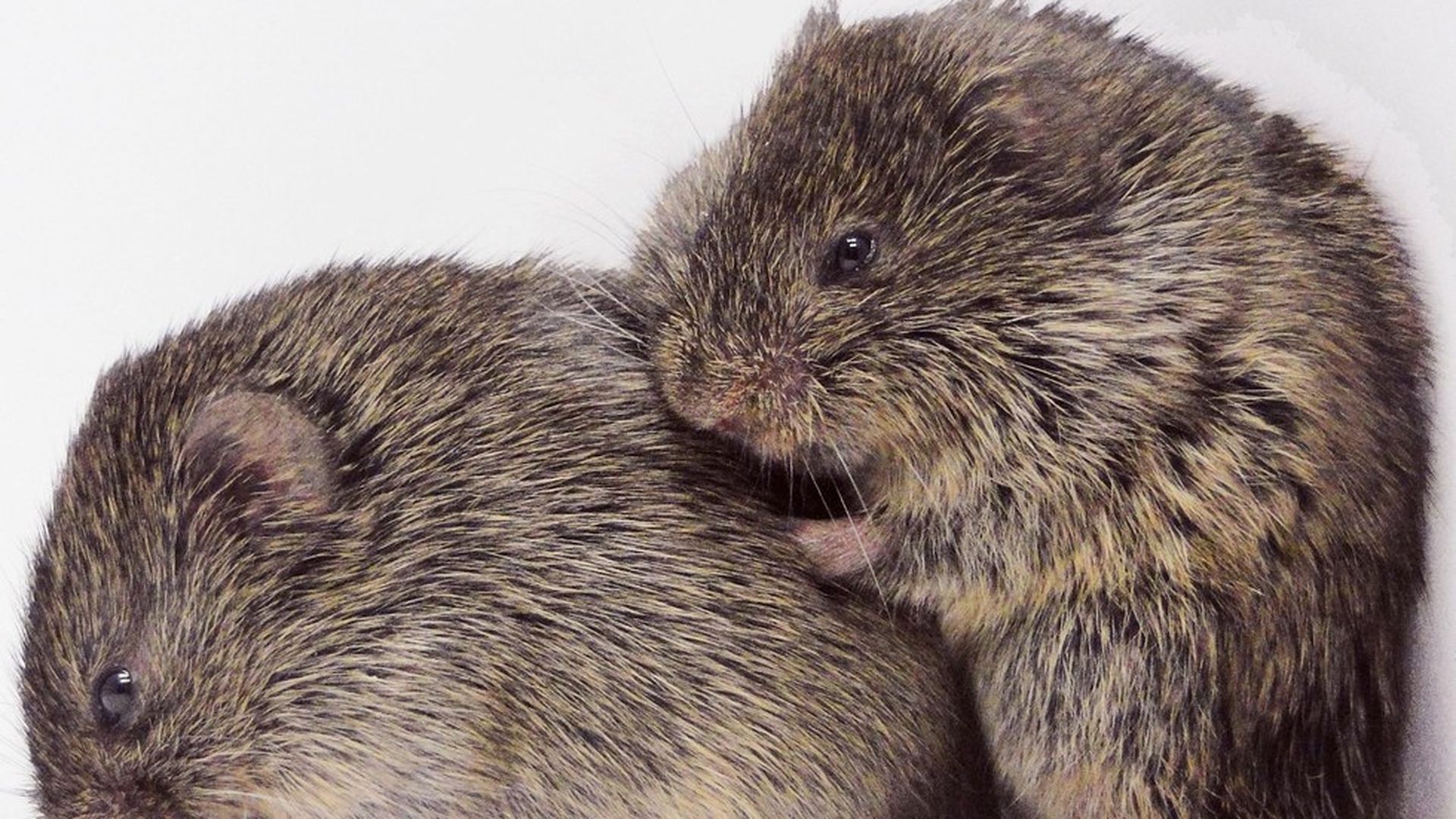The brain sees monogamy as a reward
Add Axios as your preferred source to
see more of our stories on Google.

Zack Johnson
A new study of prairie voles, one of the few other mammals that choose just one mate, seems to indicate that the brain's reward system is hard-wired to respond to these bonds.
Scientists have long known that socially monogamous mammals, including humans, actually change their perception of their partners when they bond as adults. What they didn't know was how the brain's neural circuitry is activated by these social interactions. This is the first comprehensive look at that question and it turns out a neural pathway that responds to rewards can be activated to increase a partner's preference for partners over strangers.
How they did it: A certain part of the brain (the corticostriatal circuit) controls the ability of animals to change their behavior in order to receive rewards. In the study, researchers used a pulsating light technique called optogenetics to systematically activate brain cells in this region in female voles that were alone. After their brain cells were bathed with light in this manner in the presence of male voles, the female prairie voles routinely chose those particular male voles over strangers.
Fun fact: The researchers also found that when the circuit's neurons were more strongly connected in females, they bonded faster with male voles they knew from earlier social settings.
What's next: The researchers say they need to test whether the circuit is necessary or just sufficient for bonding behavior and what more is involved.
